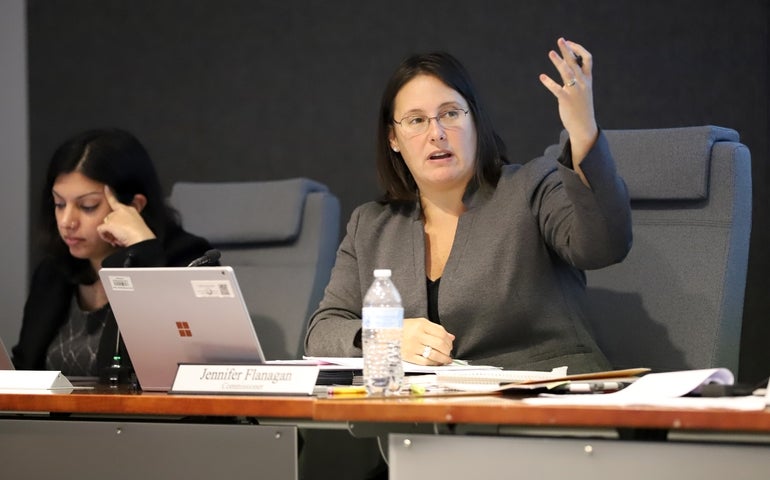The Massachusetts Cannabis Control Commission unanimously voted on several changes to its delivery license model at a regulatory discussion meeting on Friday, expanding a program still yet to get fully off the ground.
Among the most significant changes was a unanimous vote to divide delivery licenses into two categories, allowing for a straightforward courier-style license as well as a separate delivery license that would also permit wholesaling and require warehousing.
Until Friday, the CCC’s delivery license model only allowed for simple courier businesses, wherein drivers may deliver products between retailers and consumers, and may not store any merchandise when not working, which commissioners compared to business models like UberEats. The licensing model is intended to make it easier for prospective business owners to get into the market because it doesn’t require maintaining a brick-and-mortar location.
The license model newly added on Friday will not only allow delivery businesses to purchase cannabis products directly from cultivation and manufacturing facilities, but will also require those businesses to warehouse products, as well.
Commissioners discussed tiering the wholesale delivery license similarly to how cultivation licenses are segmented but decided to push the issue forward to an upcoming meeting. Discussion in favor revolved around devising a sliding scale application and license renewal fee structure proportionate to how much it costs the CCC to regulate business of different sizes. Separately, Commissioner Britte McBride noted municipalities will likely ask prospective delivery business owners how large their operation would be, and tiering could provide a concrete reference point.
Whether the CCC will take the issue up at its Sept. 10 or Sept. 24 meeting will largely depend on the CCC’s administrative capacity between now and then.
There are currently no operational cannabis delivery businesses in the state. Applications for delivery businesses opened in May and are exclusively limited to economic empowerment applications and social equity program participants. Initially, that exclusivity period was set to last two years from the date that the first delivery applicant is allowed to open. On Friday, the CCC voted to extend that exclusivity period to three years.
No delivery licenses for microbusinesses
Separately, the CCC declined to take any action on a proposal to allow microbusinesses to apply for delivery licenses, with Commissioner Shaleen Title representing the only voice arguing in favor of the idea.
As it stands, microbusinesses may apply for delivery endorsements, which allow them to deliver their own products. They may not deliver products from retailers, manufacturers or cultivators. It’s important to note delivery endorsements are subject to the same economic empowerment applicant and social equity participant exclusivity window as delivery licenses.
To date, there are only two microbusinesses operating in the state, both in Uxbridge. Neither qualify as economic empowerment businesses or social equity program participants and they are consequently not allowed to deliver their products to consumers.
During Friday’s discussion, Title argued despite the CCC’s intentions when designing the microbusiness license model, she wasn’t sure there were significant incentives for business owners to actually pursue it.
Intended to bolster small businesses, the license type limits business owners to purchasing 2,000 pounds of cannabis a year and caps them at 5,000 square feet of grow space. And although fees are discounted 50%, both of the state’s microbusinesses previously lamented to WBJ they were still subjected to the lengthy license approval wait times as larger license applicants, which caused them to hemorrhage money while maintaining their facilities during the application process.
McBride argued those applying for microbusiness licenses know what they are getting into and said she didn’t support allowing them to apply for delivery licenses at this time.
“They were created to provide and to really sort of insulate that business type, and it’s a decision to get a microbusiness license, understanding that it’s a particular model and there are certain limitations that come with it,” she said.
Commission Chairman Steven Hoffman acknowledged it would be worth revisiting aspects of the microbusiness model in the future, but said he, too, did not want to allow those businesses to pursue delivery licenses. Commissioner Jennifer Flanagan agreed and the commission ultimately moved forward without taking action.

